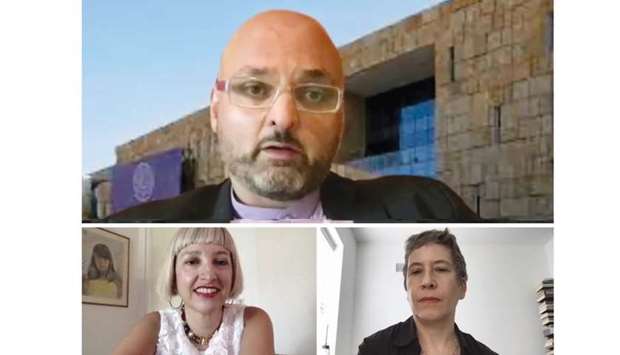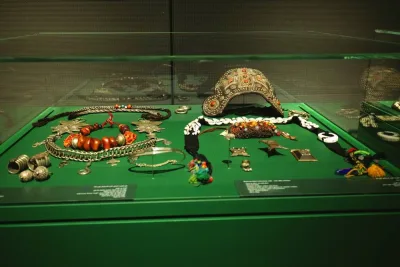Academic publishing during a pandemic and a preview of dean Marwan M Kraidy’s strategic priorities for Northwestern Qatar were main topics that were covered in this year's colloquium, an annual event for faculty and staff. The event also highlighted the research and creative output of the university’s faculty.
Dean Kraidy outlined his four strategic priorities for this year. The first of these, he said, is to “reposition the institution as a scholarly community that is involved in the production of original knowledge and storytelling of all kinds.”
Due to the global move to online learning, a transition Kraidy believes is accelerated but not ignited by Covid-19, Northwestern Qatar is able to continue distinguishing itself in this online environment by “focusing on what we do best, taking advantage of our location, and becoming more visible as a node for creating new knowledge and new stories.”
The importance of shared governance was the subject of Kraidy’s second strategic priority, which he defined as a “self-governing faculty that abide by a set of academic values and professional norms that are then translated into processes and procedures that are both clearly spelled out and equitable.” His third priority relates to “faculty hiring, nurturing, promotion, and retention,” which he said is “a fundamental aspect of everything that we do and has to correspond to our mission.” The fourth and final priority addressed “a programme and agenda of research where everybody becomes known for a few fundamental questions and a variety of studies around them.”
The colloquium also included a keynote panel on “Academic Research During a Pandemic,” which featured insights from Mary C Francis, director of the University of Pennsylvania Press, and Zizi Papacharissi, professor of political science and head of the Communication Department at the University of Illinois-Chicago.
Providing an overview of a publishing industry disrupted by a global pandemic, Francis noted “something of a contraction in scholarly publishing,” the implications of which are seen in journals and publishers getting smaller and being forced to focus on their strengths, though she said these outlets are unlikely to disappear completely. Two other derivatives from the impact of Covid-19 according to Francis manifest in the “sharp turn toward digital delivery for books” and the “notable inequalities and lags in submission that divide along gender lines.”
Papacharissi reflected on her experience as a journal editor, drawing on major trends she believes have made a difference in the past two years. These included open access, online publishing, the uneasy division between books and articles in the field and its relationship to tenure, and the peer-review system and its areas of improvement.



